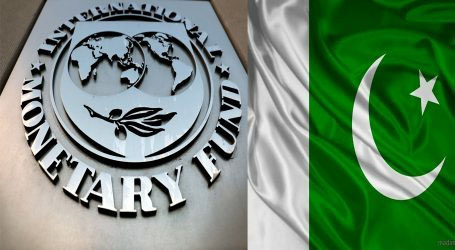Lahore
COVID-19 pandemic outbreak has triggered huge losses to the global economies by shaking industrial productions, socio-economic bonds, worker-employer payment issues and related financial structures, around the world.
On the global economic front, developed and under-developed economies mutually are facing many new and escalating challenges, due to novel coronavirus pandemic.
Since the first diagnosed case of the COVID-19, the deadly virus has spread to over 213 countries and territories, with 9,876,507 confirmed cases, and a death toll of 495, 418, due to coronavirus, around the world while the epidemic is still spreading rapidly, triggering more and more losses to economies, World Health Organization (WHO) observed in its data.
Meanwhile, the International Monetary Fund (IMF) on Wednesday had revised downward the GDP growth rate target for Pakistan from 2 percent to one percent for the next fiscal year 2020-21.World’s top most economies including the US, China, Japan, France, UK, Germany, Italy, and many others are at the verge of collapse.
The situation has worsened as the world stock markets have been pounded while oil prices have fallen off a cliff, said a UN report which has been released recently.
Discussing the topic ‘Reopening and revival of the Economy’, amid the IMF outlook report and its impact on US economy, Mr. Andrew Duguay, a leading US senior economist, had highlighted different issues including unrecovered jobs, balance of employment scenarios, job reallocation and other issues, across the USA.
He had also provided an ‘employment mapping across industries’ as a benchmark, moving through the rest of the year and into 2021.
Noted fora and leading economists had issued alerts and warnings to the world by indicating a ‘global economic recession’ as daily wage workers had been ousted from their jobs, amid factories’ closure and the healthcare systems had become overwhelmed, it said.
Prime Minister Imran Khan in his recent keynote speech via video link, at the World Economic Forum (WEF) had said that in Pakistan, 25 million people earn daily wages and due to lockdown they went out of jobs and the government came up with immediate emergency cash transfers. “So far, we have given cash handouts to 15 million families to mitigate immediate risks of lockdown,” the Prime Minister said.
To overcome economic crisis and boost economic growth in the coronavirus situation, the incumbent PTI government had pursued an unprecedented initiative to re-activate construction industry, which is considered as the ‘mother of all industries,’ sharing the biggest contribution to the economy both at national and international levels, a document of Ehsas Emergency Cash Programme revealed.So far, an amount of Rs 65.249 billion had been disbursed among 5.437 million deserving families across the country, under Ehsaas Emergency Cash Programme, it said.
Noted economist Dr Ashfaq Ahmed told APP that amid the prevailing situation, the entrepreneurs and the industrialist should focus and work on innovation lines as protected equipment, preparation of masks and other COVID-19 related equipment for the local and export market were being demanded world-wide, adding this would boost the economy and GDP ratio.
He said that the demand of these items would be standing even after the pandemic. The employers should come-up with new ideas and explore new markets, he added. He said that the COVID pandemic had imbalanced the service sector by hurting millions of lower-wage workers across the globe, but in Pakistan it was commendable that the incumbent PTI government had given both protection and work to the daily-wagers by prioritizing physical proximity while announcing incentives for poor strata of the country, and re-establishing construction sector.—APP










